Thanks to volunteers and anonymous sponsors that include former prime ministers, the Wildlife Friends Foundation Thailand provides medical care and shelter for 400 injured animals. Yet its founder faces constant threats for speaking out against the corruption and illegal trade that is often responsible for the animals’ plight
By Colin Hastings
By Colin Hastings
| HEAD down a quiet country road, some 20 minutes’ drive from Hua Hin, and with a bit of luck you’ll come across a half-hidden enclosure, beside a beautiful Buddhist temple that is attracting the attention of a certain group of foreign visitors just as successfully as the resort’s luxury hotels and sandy beaches lure five-star tourists in their thousands. This tranquil spot is the humble yet amazing home of the Wildlife Friends Foundation Thailand (WFFT), an independent, self-funding organization that rescues maltreated and neglected wild animals, gives them medical treatment, and if necessary provides shelter for the rest of their lives. Beyond a modest reception area, with its offices, medical facilities and Land Rover, is a vast, thickly forested area given to WFFT by the abbot from the neighbouring temple. It is here that all kinds of animals are rehabilitated in an environment that’s as close to their original habitat as possible. The current list of inmates includes dozens of elephants, bears, gibbons, loris, deer, snakes, pangolins, tortoises and exotic birds. Some are allowed to roam freely, while others are understandably restricted to large cages and aviaries. Past ‘patients’ have included a tiger and a crocodile. |
It is the policy of WFFT that only animals that have suffered at the hands of humans are accepted to this Rescue Centre. This deliberately sets them apart from those that have been injured as a result of natural occurrences, such as fights and falls, however severe. And whenever possible, those animals strong enough after rehabilitation may be released back into the wild.
Looking after damaged animals that no-one else wants is a huge and expensive undertaking. To make it happen WFFT relies on the generosity of sponsors – simple donations in some cases, anonymous contributions from high rollers and even former prime ministers in others – as well as a continual supply of volunteers, mostly from overseas, who are prepared to pay modest board-and-lodging fees to spend between two weeks and six months for the privilege of helping the foundation’s 400 or so animal inmates to recuperate.
Despite the centre’s rudimentary living conditions and hard physical tasks, demand for these ‘voluntary postings” is so high that waiting lists have been formed. People from all over the world now come together to carry out back-breaking but ultimately deeply rewarding work.
The volunteers’ zeal is more than matched by the man responsible for WFFT, Edwin Wiek, a remarkable 47-year-old Dutchman, who gave up a successful career in the fashion business to open the Rescue Centre in 2001. This monumental switch of career followed “a life-changing car accident” that convinced Edwin that he needed to move into “something more meaningful.”
Today, his personal objectives go way beyond just rescuing and caring for injured animals. He campaigns hard for a ban on hunting and works tirelessly to promote conservation of all Thailand’s natural resources, fauna and flora, as well as the seas and the environment in general.
“We also educate people, particularly children, to stop cruelty to animals. We campaign against the illegal trade in wild animals for the pet industry and discourage the use of animals – especially elephants – for entertaining tourists,” says Edwin.
“Elephants are in trouble in Thailand. After the ban on logging, most of them have ended up being used for the amusement of tourists or have had to make a living begging on the streets of big cities. Walking day and night on these dirty and traffic congested roads is dangerous and unhealthy and very often, these elephants end up being involved in horrific traffic accidents.
“Regrettably, in Thailand, there are no laws to prevent this abuse and mistreatment; therefore there is an urgent need to help these animals.”
He’s a highly vocal critic of animal poaching, illegal trading in wildlife, and regularly speaks out about the corruption at high levels that he believes is mostly responsible for the country’s declining wildlife, often naming and shaming those involved.
Edwin’s views are not universally popular, however, and his enemies are mounting – with chilling consequences. At one point, the Rescue Centre was raided by hundreds of armed officials on suspicion, ironically enough, that it was engaged in illegal wildlife trading.
On other occasions, Edwin and his Thai wife have been arrested on trumped-up charges clearly designed to deter his activities. Not surprisingly, he admits he sometimes fears for his life, but soldiers on regardless, believing that his cause is just and right.
Looking after damaged animals that no-one else wants is a huge and expensive undertaking. To make it happen WFFT relies on the generosity of sponsors – simple donations in some cases, anonymous contributions from high rollers and even former prime ministers in others – as well as a continual supply of volunteers, mostly from overseas, who are prepared to pay modest board-and-lodging fees to spend between two weeks and six months for the privilege of helping the foundation’s 400 or so animal inmates to recuperate.
Despite the centre’s rudimentary living conditions and hard physical tasks, demand for these ‘voluntary postings” is so high that waiting lists have been formed. People from all over the world now come together to carry out back-breaking but ultimately deeply rewarding work.
The volunteers’ zeal is more than matched by the man responsible for WFFT, Edwin Wiek, a remarkable 47-year-old Dutchman, who gave up a successful career in the fashion business to open the Rescue Centre in 2001. This monumental switch of career followed “a life-changing car accident” that convinced Edwin that he needed to move into “something more meaningful.”
Today, his personal objectives go way beyond just rescuing and caring for injured animals. He campaigns hard for a ban on hunting and works tirelessly to promote conservation of all Thailand’s natural resources, fauna and flora, as well as the seas and the environment in general.
“We also educate people, particularly children, to stop cruelty to animals. We campaign against the illegal trade in wild animals for the pet industry and discourage the use of animals – especially elephants – for entertaining tourists,” says Edwin.
“Elephants are in trouble in Thailand. After the ban on logging, most of them have ended up being used for the amusement of tourists or have had to make a living begging on the streets of big cities. Walking day and night on these dirty and traffic congested roads is dangerous and unhealthy and very often, these elephants end up being involved in horrific traffic accidents.
“Regrettably, in Thailand, there are no laws to prevent this abuse and mistreatment; therefore there is an urgent need to help these animals.”
He’s a highly vocal critic of animal poaching, illegal trading in wildlife, and regularly speaks out about the corruption at high levels that he believes is mostly responsible for the country’s declining wildlife, often naming and shaming those involved.
Edwin’s views are not universally popular, however, and his enemies are mounting – with chilling consequences. At one point, the Rescue Centre was raided by hundreds of armed officials on suspicion, ironically enough, that it was engaged in illegal wildlife trading.
On other occasions, Edwin and his Thai wife have been arrested on trumped-up charges clearly designed to deter his activities. Not surprisingly, he admits he sometimes fears for his life, but soldiers on regardless, believing that his cause is just and right.
What has been the worst problem you and your family have faced from the ‘authorities’ with regard to your work?
In general, we hear that many government officials feel we are useful, not just in terms of helping the animals, but also by taking a huge amount of work off their shoulders. Unfortunately, some officials are corrupt – and also occupy high places. These people may speak out the loudest but use their powers to protect their income and their “friends” involved in the very lucrative illegal wildlife trade. As we are not only helping wildlife in need, but also making people aware of illegal trade and animal cruelty, it makes us a potential target for those people. Physical threats are one thing we face, but the armed raids with 100-150 armed officials to intimidate us and the spreading of lies on what we do is tougher to deal with.
Has your life ever been in danger?
Yes, not a week goes by when I do not look back at what has happened and think that I should stop this kind of work. But then again, crossing a busy street in Bangkok is pretty dangerous as well.
How do you cope?
Although I am not a lawyer, I do know the law quite well. I know my rights and I also know the limitations of “their” powers sometimes better than “they” do. It surely helps to know how far you can go, or how far to cross the boundaries in my situation.
Is Thailand doing enough to protect its wildlife?
No, the illegal wildlife trade is second to the illegal drugs trade only. The poaching and the trading are like stealing the country’s heritage, but people here face only a maximum penalty of 40,000 baht if caught, while they can make millions in one transaction. If the government was serious they would start to really enforce current laws and increase the penalties to levels where it would really hurt the poachers and traders.
Who are the worst offenders in exploiting Thailand’s wildlife?
Unscrupulous businessmen well-connected with corrupt government officials.
How corrupt is the ‘system’? Examples, please
In January 2012, five elephants were found killed in a National Park in Thailand, their calves taken away to tourist elephant camps by wildlife traders, with the assistance of officials. Some officials were hiding for months, and a young man was shot dead as he tried “to run away” with one of the elephant calves in another province. Two poor Karen boys took the heat in the end and were convicted for killing the elephants and trading the calves, a job that would be practically impossible for them to have done on their own.
In February 2012, a slaughterhouse for tigers and other wildlife was found in Bangkok, the owner was arrested and several corpses of wild animals were found and taken by police. Three months ago, the owner was found not guilty in court, due to “lack of evidence.”
In April 2012, a man was arrested with 300 protected wild animals in Saraburi. He didn’t have a zoo permit or documents to prove ownership. He still has his animals and was never charged in court. If you need any examples, I can go on and on…
Who, or what, in Thailand has been the most helpful to your cause and your work?
In the past we had a great police chief of the NRECD, Police General Swake Pinsinchai, who not only helped us to fight the illegal wildlife trade but was also very willing to work with NGOs in Thailand and abroad.
The parliamentary committee on Law, Justice and Human Rights has been a great help too. Parliamentarians from all parties have spoken out in favor of our work and have protected us from further attacks over the last year.
Social media and Thai people in general have also been very helpful. It has become very difficult for officials to keep lies going nowadays. The control of the local media is still widespread, but with Thai people being very active online, it has become impossible to keep the truth from the general population. When the WFFT and the Elephant Nature Park were attacked last year, one department manipulated the media with lies and nonsense, but within days through social media the other (true) side of the story was widely covered.
In general, we hear that many government officials feel we are useful, not just in terms of helping the animals, but also by taking a huge amount of work off their shoulders. Unfortunately, some officials are corrupt – and also occupy high places. These people may speak out the loudest but use their powers to protect their income and their “friends” involved in the very lucrative illegal wildlife trade. As we are not only helping wildlife in need, but also making people aware of illegal trade and animal cruelty, it makes us a potential target for those people. Physical threats are one thing we face, but the armed raids with 100-150 armed officials to intimidate us and the spreading of lies on what we do is tougher to deal with.
Has your life ever been in danger?
Yes, not a week goes by when I do not look back at what has happened and think that I should stop this kind of work. But then again, crossing a busy street in Bangkok is pretty dangerous as well.
How do you cope?
Although I am not a lawyer, I do know the law quite well. I know my rights and I also know the limitations of “their” powers sometimes better than “they” do. It surely helps to know how far you can go, or how far to cross the boundaries in my situation.
Is Thailand doing enough to protect its wildlife?
No, the illegal wildlife trade is second to the illegal drugs trade only. The poaching and the trading are like stealing the country’s heritage, but people here face only a maximum penalty of 40,000 baht if caught, while they can make millions in one transaction. If the government was serious they would start to really enforce current laws and increase the penalties to levels where it would really hurt the poachers and traders.
Who are the worst offenders in exploiting Thailand’s wildlife?
Unscrupulous businessmen well-connected with corrupt government officials.
How corrupt is the ‘system’? Examples, please
In January 2012, five elephants were found killed in a National Park in Thailand, their calves taken away to tourist elephant camps by wildlife traders, with the assistance of officials. Some officials were hiding for months, and a young man was shot dead as he tried “to run away” with one of the elephant calves in another province. Two poor Karen boys took the heat in the end and were convicted for killing the elephants and trading the calves, a job that would be practically impossible for them to have done on their own.
In February 2012, a slaughterhouse for tigers and other wildlife was found in Bangkok, the owner was arrested and several corpses of wild animals were found and taken by police. Three months ago, the owner was found not guilty in court, due to “lack of evidence.”
In April 2012, a man was arrested with 300 protected wild animals in Saraburi. He didn’t have a zoo permit or documents to prove ownership. He still has his animals and was never charged in court. If you need any examples, I can go on and on…
Who, or what, in Thailand has been the most helpful to your cause and your work?
In the past we had a great police chief of the NRECD, Police General Swake Pinsinchai, who not only helped us to fight the illegal wildlife trade but was also very willing to work with NGOs in Thailand and abroad.
The parliamentary committee on Law, Justice and Human Rights has been a great help too. Parliamentarians from all parties have spoken out in favor of our work and have protected us from further attacks over the last year.
Social media and Thai people in general have also been very helpful. It has become very difficult for officials to keep lies going nowadays. The control of the local media is still widespread, but with Thai people being very active online, it has become impossible to keep the truth from the general population. When the WFFT and the Elephant Nature Park were attacked last year, one department manipulated the media with lies and nonsense, but within days through social media the other (true) side of the story was widely covered.
| Killed by poachers; overdose of anesthesia? A BABY elephant aged between 3-6 months old was found dead in Salakpra forest in Kanchanaburi. Villagers from Wangchan in Wangdong district who went to collect forest products found the calf, which had died only a few hours before. The baby elephant had no wounds or bruises and its body looked normal. Officials from the district enforcement suggested it was maybe killed by a poisonous animal such as a snake. Some organs were removed by livestock department veterinarians for forensic tests in Bangkok. Local villagers said that in the past poachers had entered the park and had taken baby elephants from the wild for the lucrative tourism trade, ending up as show elephants in elephant camps. Some villagers suspected the calf might have been shot with tranquilizers by poachers and had died of an overdose. (From the WFFT Website) |
How can ordinary people help?
Spread awareness, change behavior, volunteer your time, or donate.
Is this a lifetime crusade for you?
Ha. It has been like that for the past 14 years only. But yes maybe it will be.
What’s next?
We hope to be able to set up new rescue facilities in Malaysia and Laos. We would also like to do more research on marine mammals in Thailand and find ways to protect them better.
We are currently planning the construction of an open elephant forest, measuring about 10 hectares for a group of rescued and retired elephants. WFFT is the only center that keeps elephants off the chains 24/7 and wants to increase the living space dramatically.
How successful was your recent “drone’ in filming a major illegal wildlife dealer based on the Thai-Laos border?
The use of the “drone” was a great success and it showed us that the illegal wildlife trade is getting completely out of hand. We photographed compounds of some known wildlife traders and found they have increased dramatically the size of their enclosures for tigers, bears and other animals like pangolins over the last 18 months. It’s a sign their business must be booming.
We also were able to help patrol a part of the river-border to find hide-outs near river crossings.
Is the WFFT financially secure?
No, but currently kind of sustainable. With very high costs, two veterinarians, 400 animals to feed, including nine elephants, and a lot of staff (34) working with the animals, helping out elsewhere in Thailand and investigating the trade, we will need a lot more funding to keep going. Advocacy is the key to further success, and for that we will need more financial help.
Need more sponsors?
Yes, we always like to do better and help more animals.
Spread awareness, change behavior, volunteer your time, or donate.
Is this a lifetime crusade for you?
Ha. It has been like that for the past 14 years only. But yes maybe it will be.
What’s next?
We hope to be able to set up new rescue facilities in Malaysia and Laos. We would also like to do more research on marine mammals in Thailand and find ways to protect them better.
We are currently planning the construction of an open elephant forest, measuring about 10 hectares for a group of rescued and retired elephants. WFFT is the only center that keeps elephants off the chains 24/7 and wants to increase the living space dramatically.
How successful was your recent “drone’ in filming a major illegal wildlife dealer based on the Thai-Laos border?
The use of the “drone” was a great success and it showed us that the illegal wildlife trade is getting completely out of hand. We photographed compounds of some known wildlife traders and found they have increased dramatically the size of their enclosures for tigers, bears and other animals like pangolins over the last 18 months. It’s a sign their business must be booming.
We also were able to help patrol a part of the river-border to find hide-outs near river crossings.
Is the WFFT financially secure?
No, but currently kind of sustainable. With very high costs, two veterinarians, 400 animals to feed, including nine elephants, and a lot of staff (34) working with the animals, helping out elsewhere in Thailand and investigating the trade, we will need a lot more funding to keep going. Advocacy is the key to further success, and for that we will need more financial help.
Need more sponsors?
Yes, we always like to do better and help more animals.
| Drone uncovers illegal trade IN its fight against illegal wildlife trade, WFFT recently used a small non-military drone to photograph a high-walled compound in northern Thailand which the foundation alleges houses tigers, bears and pangolins. The size of this compound has increased significantly over the past 18 months, claims Edwin Wiek. “Business must be good and booming,” he says. |

From fashion to animal welfare
AFTER leaving school at 17, Edwin joined the army. Three years later he began working for a fashion company – his family has a background in this business – and was soon on the road as a buying assistant, designing fashion accessories in several countries in Asia. Moving to Hong Kong at 23, he launched a small company himself, after which he moved to Thailand in 1989 to set up a small factory making fashion accessories. In 1999 Edwin had a life-changing car accident and “wanted to leave something more behind than just a company and some money.” In August 1999, a friend gave him a monkey he no longer wanted. “I started to get in touch with wildlife NGOs as I was looking for a place to take this little guy. There were no proper facilities, so I decided to help and set one up. Things got out of hand you might say, as we now care for over 400 animals fulltime at WFFT, run a mobile clinic and have a fully equipped hospital on-site.”
Wildlife Friends of Thailand Moo 6, Tambon Thamairuak, Amphoe Thayang, 76130 Petchaburi, Thailand.
Tel: 032 458 135
E-mail General Enquiries to: [email protected]
Email Volunteering Enquiries to: [email protected]
Email Reports and Complaints to: [email protected]
Email the Veterinary Department on: [email protected]
Skype: wildlife_rescue
AFTER leaving school at 17, Edwin joined the army. Three years later he began working for a fashion company – his family has a background in this business – and was soon on the road as a buying assistant, designing fashion accessories in several countries in Asia. Moving to Hong Kong at 23, he launched a small company himself, after which he moved to Thailand in 1989 to set up a small factory making fashion accessories. In 1999 Edwin had a life-changing car accident and “wanted to leave something more behind than just a company and some money.” In August 1999, a friend gave him a monkey he no longer wanted. “I started to get in touch with wildlife NGOs as I was looking for a place to take this little guy. There were no proper facilities, so I decided to help and set one up. Things got out of hand you might say, as we now care for over 400 animals fulltime at WFFT, run a mobile clinic and have a fully equipped hospital on-site.”
Wildlife Friends of Thailand Moo 6, Tambon Thamairuak, Amphoe Thayang, 76130 Petchaburi, Thailand.
Tel: 032 458 135
E-mail General Enquiries to: [email protected]
Email Volunteering Enquiries to: [email protected]
Email Reports and Complaints to: [email protected]
Email the Veterinary Department on: [email protected]
Skype: wildlife_rescue

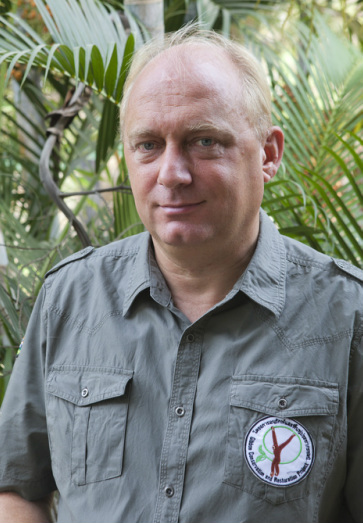
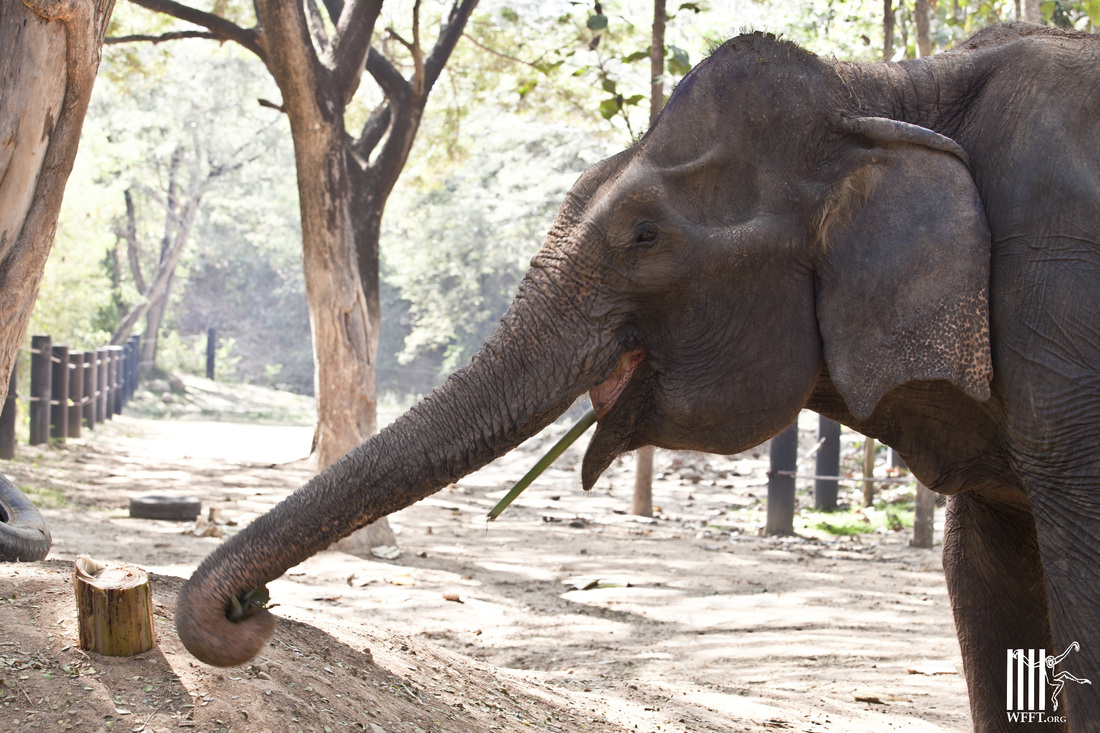
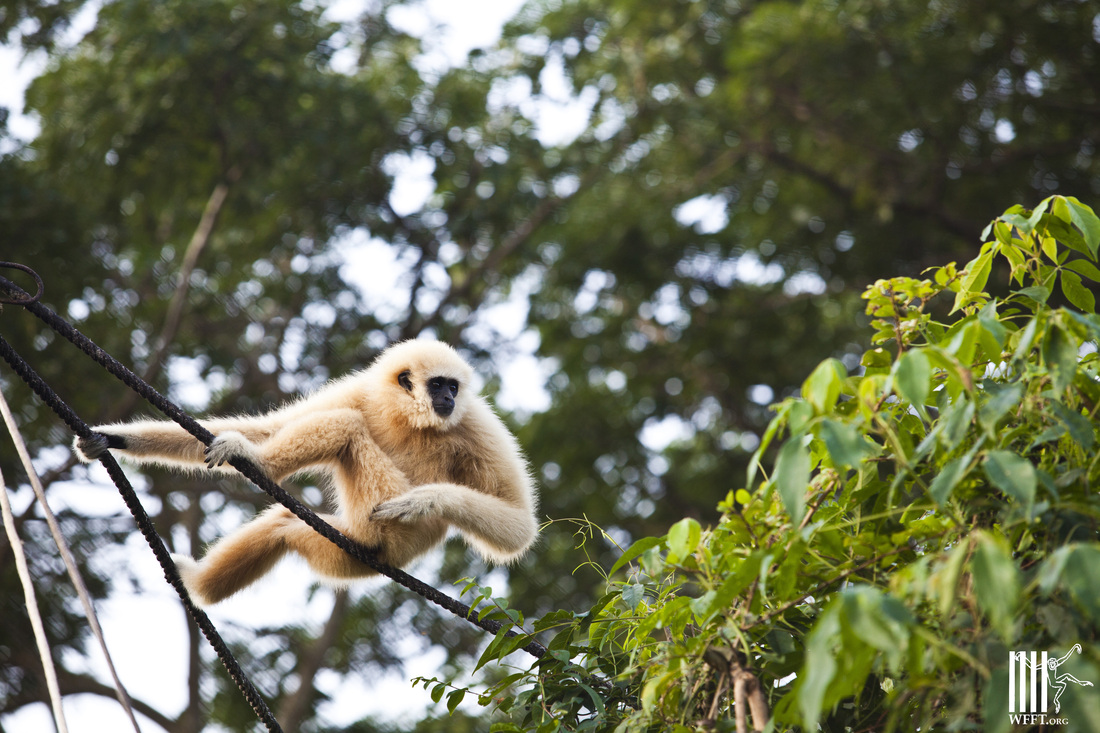
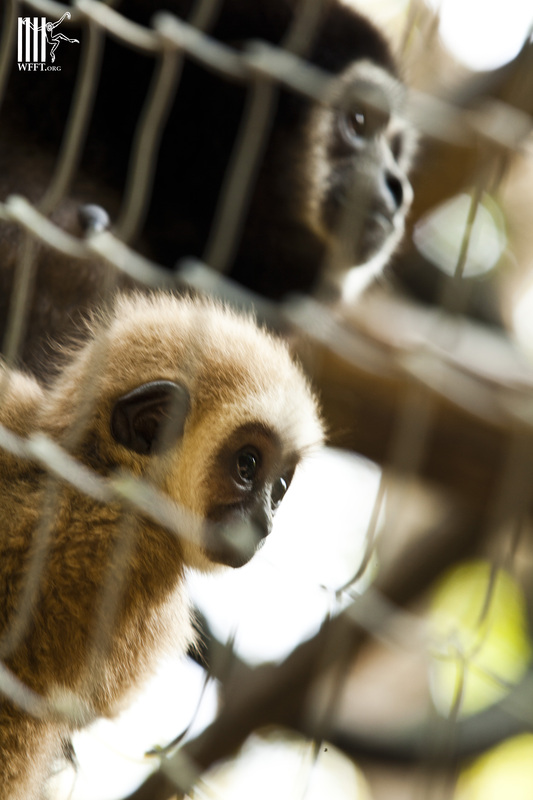
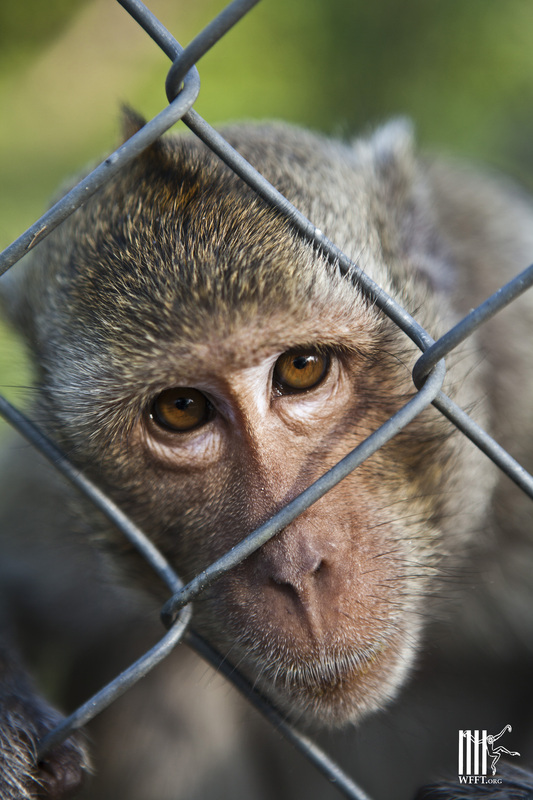
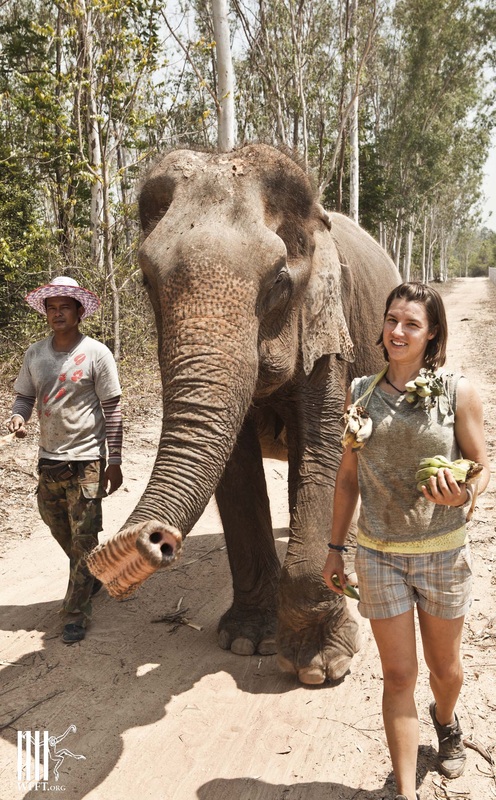

 RSS Feed
RSS Feed
















